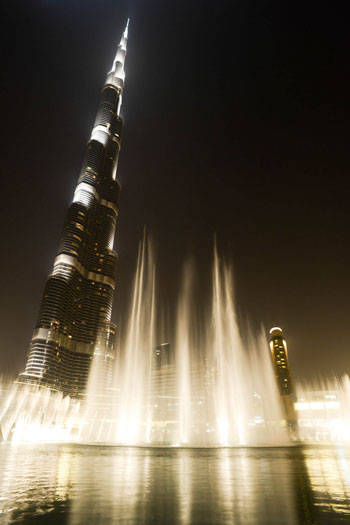After you’ve made the decision to live in Dubai, knowing a few things about accommodation, healthcare, educational facilities, and the average living costs in Dubai will make life a lot easier. Read on for a summary of all the necessities required for a comfortable, enjoyable expat life in Dubai.
 Culture and religion
Culture and religion
As in the rest of the United Arab Emirates, Dubai is officially an Islamic state. This is most apparent when standing before the beautiful Jumeirah Mosque. A visit to the Mosque can be organized at the Sheik Mohammed Centre for Cultural Understanding and all non-Muslims and expats are warmly welcomed and encouraged to do so.
Housing and utilities
Before making a fresh new start in Dubai you should know: only legal residents can rent an apartment and have the utilities connected. If you haven’t received your Residence Permit yet, ask your employer to provide proof that your permit is being processed. Short-term accommodation is available but expensive.
In Dubai, you should expect to pay around AED 100,000 to 150,000 per year for a two-bedroom apartment. A family villa obviously costs more. Most Dubai rental contracts are valid for one year, are renewed annually, and must usually be paid up front.
Utilities for the same apartment typically cost around AED 1,200 per month. However, you might spend more in the hot summer months from May to August – air-conditioning is a necessity with temperatures over 40°C (104°F)!
Once you have your housing and utilities sorted out, you might want to consider hiring some of the very affordable domestic help, for example, a nanny or maid. Hiring someone full-time costs around AED 3,000 per month or, if you only need an occasional cleaner, about AED 30 per hour.
Healthcare and insurance
All expats are required to undergo a medical exam to ensure their health and ability to work. This is often organized by employers and necessary to receive a residence visa and labor card. Once done, you can apply for a health card that entitles you to basic medical care. Most expats opt for private health insurance which enables them to get comprehensive treatment at Dubai’s private hospitals. It’s possible your employer covers the costs of this, so make sure you ask about it when negotiating your contract.
Education and childcare
Schools for expat children are readily available but costly, for example, The American School in Dubai requires AED 105,000 in tuition fees which don’t include registration, textbooks or extra-curricular activities. You might also have some trouble finding a kindergarten or crèche for children under eighteen months – another reason to consider some domestic staff.
While the state universities are generally reserved for the local Emiratis, there are many high-quality international and regional universities in Dubai, including the Higher Colleges of Technology (HCT), the Center of Excellence for Applied Research and Training (CERT), Harvard Medical School Dubai Center, London Business School, and many others.
Transportation
Dubai as a city is spread out but one of the most well connected cities in the Gulf Region. Public transportation options are varied and affordable including a metro, buses, and water taxis. A lot of expats, however, opt for a car. An average mid-range car costs about AED 2,000 per month to lease, including fuel and insurance. If you’re going out at night for dinner and drinks, you won’t have any trouble getting a taxi home. They are cheap and most concierges at the hotels and bars will call one for you.
Enjoy yourself!